When making authentic elote, the best chili powder to use is Mexican-style chile en polvo (chile powder), a blend of dried chiles like ancho and guajillo without added spices such as cumin or garlic. This ensures the authentic, earthy flavor without competing tastes.
Whether you're a seasoned cook or a weekend griller, this guide covers everything you need to know to choose, use, and store the perfect chili powder for your street corn.
Table of Contents
- Chili Powder 101: What You Need to Know
- Top 7 Chili Powder Hacks for Better Elote
- Buying Guide: How to Choose the Best Chili Powder for Elote
- Storage Secrets: Keep Your Spice Fresh Longer
- FAQs About Using Chili Powder for Elote
- Final Thoughts
Chili Powder 101: What You Need to Know
Before we dive into hacks and recipes, let's get real about what chili powder actually is — and why not all varieties are created equal.
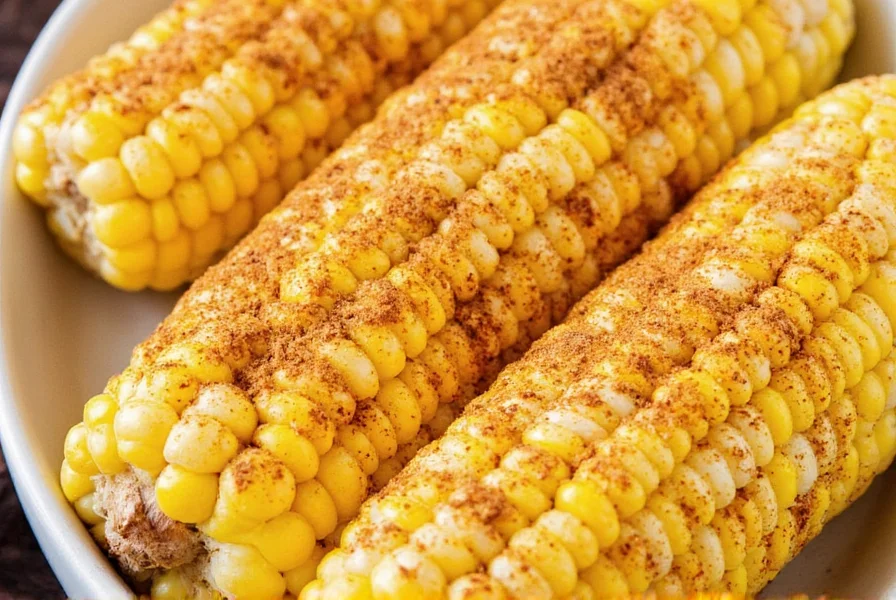
What Is Chili Powder?
Despite its name, chili powder isn't always made from one type of chile. It can be a blend of dried chiles, cumin, garlic powder, oregano, and even salt. This means each brand brings something different to the table.
Types of Chili Powder
| Type | Heat Level (SHU) | Flavor Notes | Best For |
|---|---|---|---|
| Mexican Chili Powder | 500–2,000 | Earthy, smoky, slightly sweet | Authentic elote, tacos |
| Chili Flakes | 15,000–50,000 | Sharp, spicy bite | Dusting over finished elote |
| Paprika (Hot) | 5,000–10,000 | Mild heat, sweet, vibrant red | Garnish, mild dishes |
| Ancho Powder | 1,000–2,000 | Deep, fruity, chocolate undertones | Rubs, sauces, complex flavors |
| Cayenne Powder | 30,000–50,000 | Burns bright and fast | Adding serious fire |
Top 7 Chili Powder Hacks for Better Elote
Now that we've got the basics down, here are some genius tricks to level up your elote game with chili powder.
Hack #1: Toast It First
Ever wonder why restaurant-style spices taste so much more intense? The secret often lies in toasting.
- Place chili powder in a dry skillet.
- Toast over low heat for 2–3 minutes, stirring constantly.
- This releases natural oils and deepens the flavor profile.
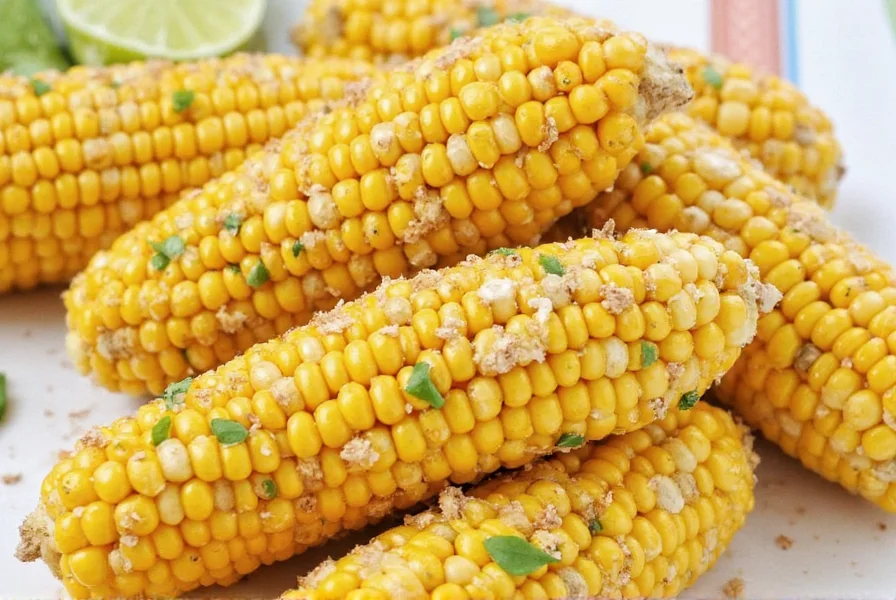
Hack #2: Mix With Mayo or Aioli
Instead of just sprinkling chili powder on top, mix it into your mayo base. This ensures every bite gets that perfect balance of creaminess and heat.
- Start with 1 tbsp mayonnaise.
- Add ½ tsp chili powder.
- Squeeze in fresh lime juice for brightness.
Hack #3: Layer Heat with Multiple Chili Powders
Don't stick to one kind! Create a custom blend by combining two or three types of chili powders for depth and dimension.
- Mexican chili powder (for earthiness)
- Pinch of cayenne (for fiery finish)
- Smoked paprika (for a hint of wood smoke)
Hack #4: Make a Chili-Lime Butter
This is a dreamy twist on classic mayo-based elote:
- Melt 2 tbsp butter
- Stir in 1 tsp chili powder and zest from one lime
- Brush generously onto hot corn
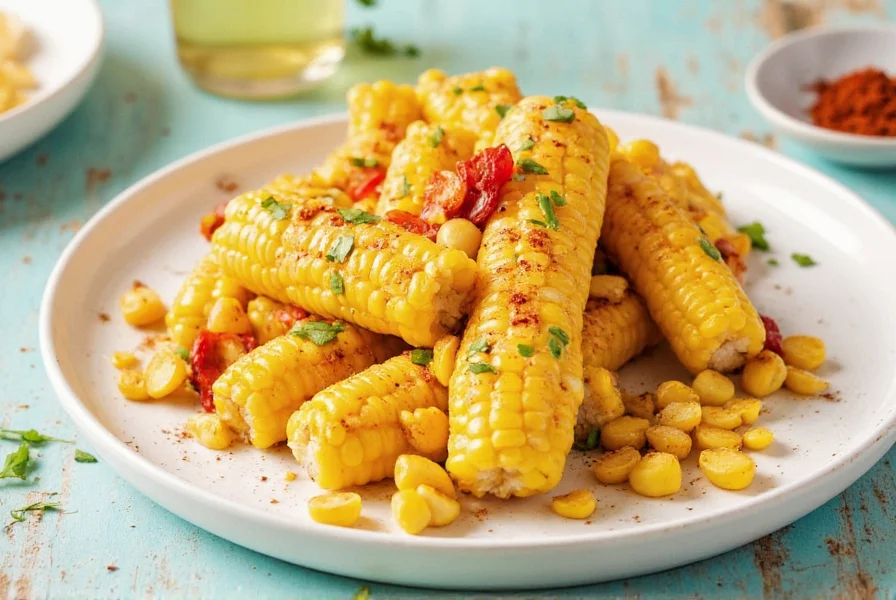
Hack #5: Use It as a Garnish with Cotija Crumble
The traditional elote topping combo is mayo, cheese, chili powder, and lime. Don't skip the chili powder — it balances the richness and ties everything together.
- Use tongs to sprinkle crumbled cotija cheese
- Sprinkle chili powder generously
- A few squeezes of lime to finish
Hack #6: Try Chili Oil Instead
If you're out of regular chili powder or want an oil-based infusion, make your own chili oil by steeping toasted chili powder in olive or avocado oil.
- Toast 1 tbsp chili powder
- Add to ¼ cup warm oil
- Let sit for 1 hour before straining
Hack #7: Customize Based on Heat Tolerance
Elote should excite, not overwhelm. Adjust your chili powder quantity and type based on your crowd.
- For kids: use paprika or half the amount of Mexican chili powder
- For spice lovers: add a dash of crushed red pepper flakes
Buying Guide: How to Choose the Best Chili Powder for Elote
Not all chili powders are created equal. Here's how to choose wisely when shopping for the best chili powder for elote.
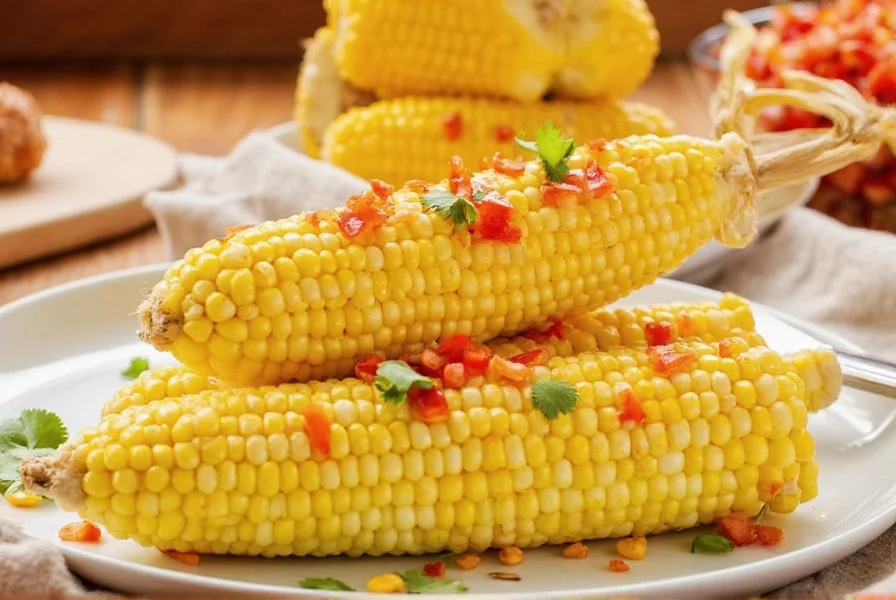
What to Look for in Chili Powder
- Natural Ingredients: Avoid additives like anti-caking agents or fillers.
- Region-Specific Blends: Mexican chili powder blends (like those labeled "para tacos") are ideal for authentic flavor.
- Freshness: Check the expiration date. Ground spices lose potency over time.
Top Picks for Chili Powder Brands
| Name | Heat Level | Flavor Profile | Pros | Cons |
|---|---|---|---|---|
| La Costeña Mexican Chili Powder | Mild to medium | Earthy, balanced, classic taco flavor | Authentic blend, widely available | May lack heat for spice lovers |
| McCormick Ground Red Pepper | Medium-hot | Standard American chili powder | Inexpensive, reliable | Lacks depth compared to artisan brands |
| Badia Spicy Chili Powder | Medium-high | Peppery, bold, slightly garlicky | Great for adding punch | May overpower milder dishes |
| La Morena Chile en Polvo | Medium | Traditional Mexican taste | Perfect for elote and salsas | Harder to find in some regions |
| Simply Organic Chili Powder | Medium | Clean, robust, herbaceous | Organic, non-GMO | Higher price point |
Who Should Buy Which Brand?
- Newbies & Families: La Costeña or McCormick — safe, familiar flavors.
- Spice Lovers: Badia or cayenne-heavy blends — for that extra zing.
- Purists & Home Chefs: La Morena or organic brands — for authenticity and clean ingredients.
Storage Secrets: Keep Your Spice Fresh Longer
You wouldn't leave your avocados in direct sunlight — don't do it to your spices either!
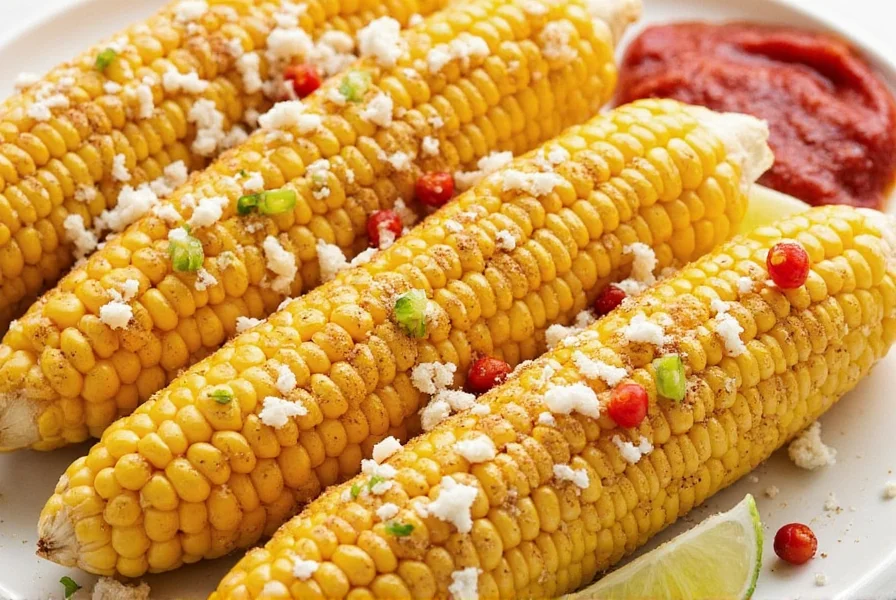
How Long Does Chili Powder Last?
Ground spices generally last 1–3 years if stored properly. Chili powder starts losing potency after 6 months, especially once opened.
Best Storage Practices
- Airtight containers: Transfer from original packaging to sealed glass jars.
- Dark cabinets: Light degrades quality — store away from windows or stovetops.
- Cool environments: Avoid storing near heat sources like ovens or microwaves.
- No moisture: Always use a dry spoon to avoid clumping or mold.
When to Replace Your Chili Powder
- Color fades significantly.
- Smell is weak or stale.
- It no longer gives your elote that "pop" it used to.
FAQs About Using Chili Powder for Elote
What's the difference between Mexican chili powder and regular chili powder for elote?
Mexican chili powder typically contains a blend of specific dried chiles (like ancho, guajillo, or pasilla) with minimal additional spices, while American-style chili powder often includes cumin, garlic powder, and salt. For authentic elote flavor, Mexican chili powder is preferred as it delivers that distinctive earthy, slightly sweet heat without competing flavors.
How much chili powder should I use on elote?
For one ear of corn, start with 1/4 to 1/2 teaspoon of chili powder mixed into your mayo base, plus an additional 1/8 teaspoon for sprinkling on top. Adjust according to your heat preference - remember you can always add more, but you can't take it away! For a crowd, use about 1 tablespoon of chili powder per cup of mayonnaise.
Can I substitute fresh chilies for chili powder in elote?
Yes, but the texture and flavor distribution will be different. To substitute, finely mince 1-2 serrano or jalapeño peppers (seeds removed for milder heat) and mix into your mayo. Fresh chilies provide a brighter, grassier heat while chili powder offers a deeper, more concentrated flavor. For best results with fresh chilies, roast them first to develop smoky notes.
Can I substitute chili powder for cayenne in elote?
Yes, but tread carefully. Cayenne is spicier, so start with half the amount called for in your recipe. If substituting cayenne for chili powder, use about 1/4 the amount since cayenne is much hotter (30,000-50,000 SHU vs Mexican chili powder's 500-2,000 SHU). A better approach is to use chili powder as your base and add a pinch of cayenne for extra heat.
Why isn't my homemade elote as spicy as street vendor versions?
Street vendors often use freshly ground chiles or specialized regional blends that home cooks might not have access to. To replicate that authentic heat: 1) Toast your chili powder first to intensify flavor, 2) Use a blend of powders (Mexican chili powder + a pinch of cayenne), 3) Add chili powder both in the sauce AND as a finishing sprinkle, and 4) Consider making your own blend using toasted and ground dried chiles like guajillo or árbol for more authentic heat.
Is chili powder gluten-free?
Pure ground chili powder is naturally gluten-free. However, some commercial blends may contain wheat as a filler or anti-caking agent, especially in cheaper brands. Always check the label if you have celiac disease or gluten sensitivity. Brands like La Morena and Simply Organic typically offer gluten-free options, but verification is recommended.
Can I make my own chili powder at home specifically for elote?
Absolutely! For authentic elote flavor, toast 2-3 dried guajillo chiles and 1-2 ancho chiles until fragrant (but not burnt), remove stems and seeds, then grind to a fine powder. This homemade blend will have brighter, more complex flavors than store-bought. Store in an airtight container for up to 3 months. For convenience, you can make a larger batch and freeze portions.
Does chili powder go bad?
Technically, it doesn't spoil, but it loses flavor and color over time. Ground spices generally maintain peak flavor for 6-12 months after opening. Signs your chili powder has lost potency include faded color (should be vibrant red), weak aroma, and failure to deliver the expected heat. Store in an airtight container away from light and heat to maximize shelf life.
Is chili powder the same as chile powder?
In Mexican cooking, "chile powder" typically refers to pure ground dried chiles with no additives, while "chili powder" (especially American-style) is a spice blend containing chile powder plus other spices like cumin and garlic. For authentic elote, seek out "chile en polvo" or Mexican-style chile powder without additional ingredients for the most traditional flavor profile.
Final Thoughts
Whether you're hosting a backyard BBQ, making a quick weeknight snack, or experimenting with global flavors, mastering your chili powder usage — especially when it comes to chili powder for elote — can transform your cooking from basic to brilliant.
From layering heat to perfect storage and creative mixing techniques, there's no shortage of ways to elevate your elote game. So next time you reach for that jar of chili powder, remember: a little goes a long way — and sometimes, the smallest spice makes the biggest difference.
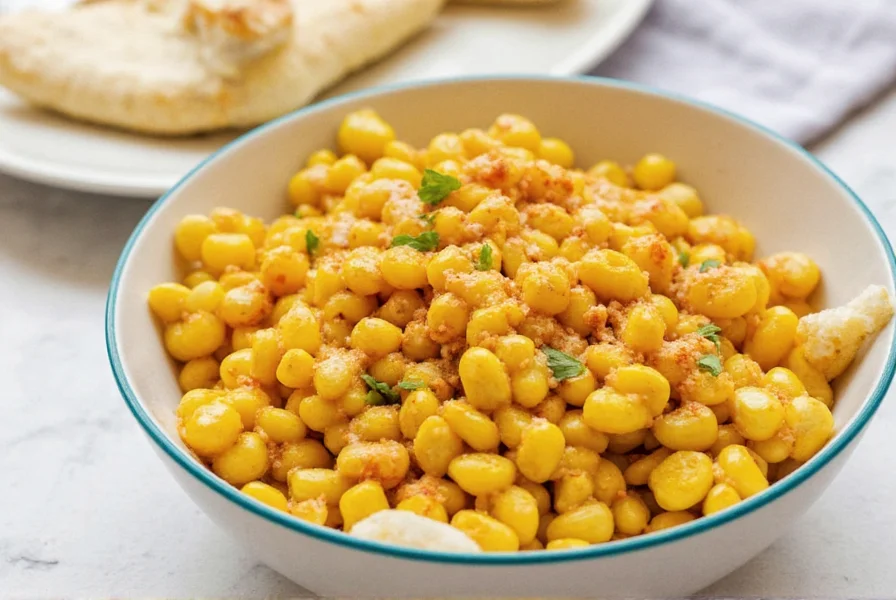
Happy grilling, happy eating, and most importantly — happy spicing!

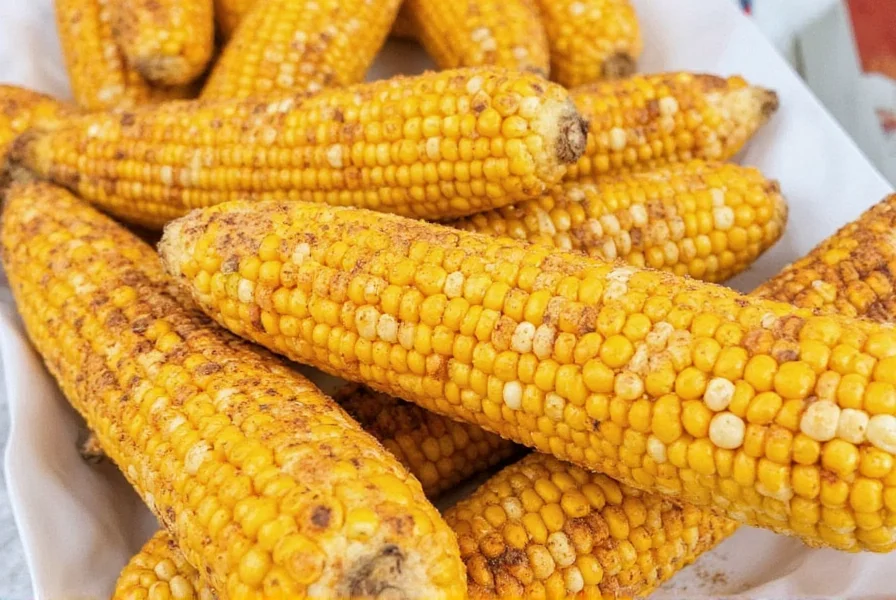









 浙公网安备
33010002000092号
浙公网安备
33010002000092号 浙B2-20120091-4
浙B2-20120091-4